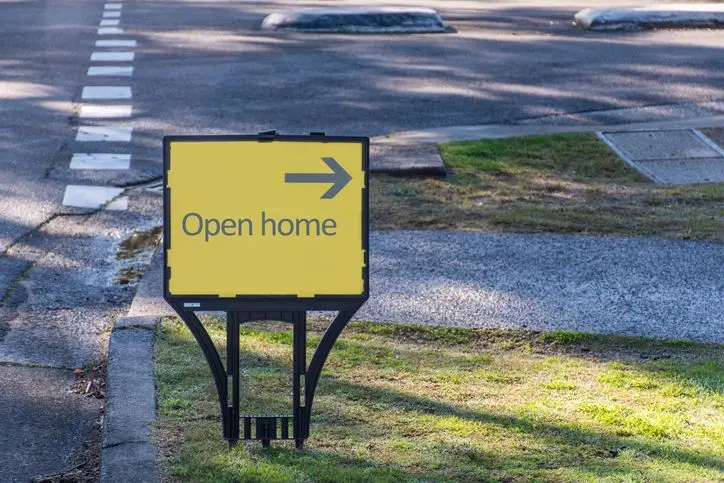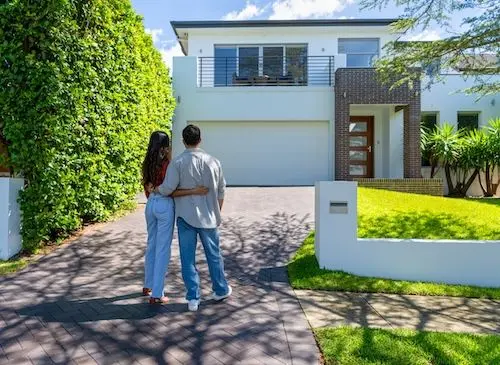
How to choose the right agent to sell your home
Finding the right agent for you can make all the difference when selling.

Selling property in Tasmania involves a unique set of steps and local regulations. Whether you're moving on, reshaping your investment portfolio, or navigating a lifestyle shift, knowing what to expect can help things go smoothly. With the right guidance and preparation, you’ll be better equipped to manage the process and get the best possible outcome.
Selling a property in Tasmania comes with a few standard costs, and agent commission is one of the biggest. Most real estate agents in Tasmania charge between 2.1% and 2.8% of the sale price, though the exact rate can vary based on your location, the agent’s experience, and your negotiation. You can use our Commissions Calculator to get an idea of typical rates in your suburb.
Beyond commission, you’ll also need to budget for marketing, conveyancing or solicitor fees, and optional extras like professional staging and photography. These costs can vary, so it’s worth getting quotes upfront or asking your agent for a breakdown. Try our Selling Costs Calculator to estimate your out-of-pocket costs before you list.
Read the full guide on how to find the right agent to sell your home.

Please select your suburb from the drop down
Use our handy selling calculator to crunch the numbers and get an estimate.
In Tasmania, private treaty is by far the most common way to sell property. This method allows sellers to set an asking price and negotiate directly with interested buyers. There’s greater flexibility around price, conditions, and settlement terms.
Auctions are relatively uncommon in Tasmania. While they can create urgency and competition in markets with high demand, they’re typically reserved for unique or prestige properties. Speak with a local agent to understand what works best for your area and property type.
Making a strong first impression is key to attracting serious buyers. Before listing your property, take time to make it as appealing as possible. Here are a few things to consider:
Read the full guide on how to prepare your property for sale.
Getting your price right from the start can make a big difference to your selling experience in Tasmania. If you set the price too high, you risk scaring off buyers and prolonging your time on the market. Too low, and you could leave money on the table.
For private treaty sales (the most common in Tasmania), your real estate agent will help you set a competitive asking price based on recent comparable sales, market conditions, and the unique features of your home.
Start by checking recent sales in your area and using an online property value estimate tool to get a rough estimate. Then work with your agent to refine your pricing strategy and adjust if needed as the campaign progresses.
A strong marketing campaign can help you reach more buyers and generate greater interest in your property. In Tasmania, most campaigns include professional photography, floor plans, and online listings on major real estate sites. Depending on your property and location, your agent may also recommend newspaper ads, social media promotion, or a 'For Sale' signboard.
Marketing costs vary based on your target audience and how much exposure you want. A good agent will help you tailor a cost-effective strategy that suits your goals and the local market.
The most important document you’ll need when selling property in Tasmania is the Contract for Sale. The contract must be prepared before the property is listed for sale, usually by a conveyancer or solicitor.
Tasmania doesn’t have a legislated cooling-off period for residential property sales. Once both parties sign the contract, the sale is usually binding. However, a cooling-off period can be added by agreement, often allowing the buyer 3 days to withdraw.
The settlement period in Tasmania is typically quicker than in many other states, often taking place around 30 days after the contract is signed or once it becomes unconditional.
Read more on settlement and how to negotiate a settlement date.

Finding the right agent for you can make all the difference when selling.

From obvious expenses to hidden costs, get the full rundown of what's involved.

See expert predictions, and current pros and cons to help you decide.

Please select your suburb from the drop down
Remove the guesswork. Use OpenAgent to help you find, compare and shortlist the top agents in your suburb.
Selling property in Tasmania? Our calculators can help you estimate agent commissions and selling costs, so you can plan your sale with greater clarity and confidence.

Calculate the costs involved in selling your property and budget effectively.

Pay the right commission for your suburb and maximise your sale price.

Our 7-day email course will guide you through every step of the selling journey.
You are able to sell a tenanted property In Tasmania as long as you follow regulations outlined by the Tasmanian Government. Often, landlord responsibilities will pass on to the buyer.
If it’s required that they vacate the property, notice must be given:
If you're selling an investment or non-primary residence in Tasmania, capital gains tax (CGT) may apply. You'll be taxed on the profit made from the sale, based on your marginal income tax rate.
If you’ve owned the property for more than 12 months, you may be eligible for a 50% CGT discount. Your main residence is generally exempt, and partial exemptions may apply under the 6-year rule if it was rented out after living in it.
Refer to the ATO or your accountant for personalised advice. Read more on tax for selling investment property.
If you're managing the sale of a deceased estate in Tasmania, there are specific legal steps to follow before the property can be sold. The Executor named in the Will must apply for a Grant of Probate through the Supreme Court of Tasmania. If there’s no will, the next of kin will need to apply for Letters of Administration to gain legal authority.
Once probate or administration is granted, the executor or administrator can legally list the property for sale. It's important to work with a solicitor or conveyancer during this process to ensure all legal and tax obligations are met.
Yes, you can sell your Tasmanian property “For Sale By Owner” (FSBO), bypassing agent fees entirely. While this saves on commission, you’ll be responsible for:
Most sellers find that experienced agents bring value through their local networks, pricing expertise, and negotiation skills.
Selling a home in Tasmania typically involves the following steps:
Timeframes vary depending on location, market conditions and season. For example, well-presented homes in Hobart may sell faster than properties in more regional areas. The median days on market (DOM) in Hobart is about 35 days. Speak to a local agent or get a free property report to understand what’s normal in your suburb.
There are no state-specific seller taxes in Tasmania. However, Capital Gains Tax (CGT) applies if the property was an investment or not your main residence. CGT is calculated based on your gain and taxed at your marginal income rate. You may be eligible for a 50% CGT discount if the property was owned for more than 12 months. Stamp duty is paid by the buyer.
In Tasmania, private treaty is the dominant method of sale. Auctions are rare and typically only used in niche, high-demand scenarios. Private treaty gives sellers greater control over pricing and negotiation, which suits the Tasmanian market. Your agent can help recommend the best method based on your goals.
In Tasmania, there is no legislated cooling-off period for residential property sales. This means that once a buyer signs the contract and both parties agree to the terms, the sale is generally binding. However, a cooling-off period can still be added to the contract. Often, a 3-day cooling-off period is added where the buyer can change their mind.